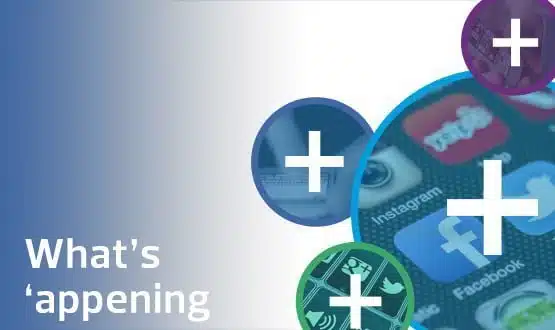Smart specs for facial palsy
Glasses that let you know when you’re smiling are being used to rehabilitate people with facial palsy. The Facial Remote Activity Monitoring Eyewear, FRAME for short, is a £800,000 project, led by Nottingham Trent University, is funded by National Institute for Health Research Invention for Innovation Programme.
Using miniaturised sensors in the frames of the glasses, the muscles’ movement and intensity are tracked, and the information is then fed back onto the patient’s smartphone. Currently those with facial palsy practice facial exercises in front of a mirror, but some patients find this discouraging, the researchers say.
Sharing your sugar readings
An app launched in Spain allows diabetics to share their glucose readings with up to 20 chosen friends and family members. LibreLinkUp app, which can be used on an android smartphone, means you can monitor other’s glucose levels and also the time it was taken, when a FreeStyle Libre sensor is scanned.
“The introduction of the FreeStyle Libre product was a tremendous breakthrough for those living with diabetes,” said Nandu Thalange, consultant paediatric endocrinologist, Norfolk and Norwich University Hospital. Thalange said it would be particularly helpful for children and the elderly.
My Inhealthcare
My Inhealthcare is also aimed at helping diabetics, along with those with high blood pressure and obesity. Available in Berkshire, Durham, Lancashire, Norfolk, Yorkshire and the Isle of Wight, the app allows patients to send health readings to their doctor or nurse, and receive dosing instructions.
The technology tracks vital signs that include blood glucose levels, heart rate, blood pressure and oxygen levels and weight. Inhealthcare chief executive Bryn Sage said instead of attending hospital for basic check-ups, “patients can now harness the power of technology to do this remotely using their smartphones”.
Keeping warm this winter
iPLATO has adapted its app to allow for flu jab immediately. The myGP app can be used by GP practices as an appointment booking technology; the practice can select eligible patients and then send them an SMS to book a flu jab by downloading or updating the myGP app.
Echo prescriptions
Another app to help GP practices is Echo. Launched this week, the product aims to help NHS patients manage their repeat prescriptions and make sure medication isn’t missed or not taken effectively. With their £1.8 million seed investment, the app allows users to make requests which are sent to their existing NHS GP for approval.
Once signed off by the practice, the prescriptions are sent to Echo’s partner pharmacies for dispensing and then arrive on your door step via the Royal Mail. National guidance estimates that between half and third of all medicines prescribed for long term conditions are not taken as recommended.

